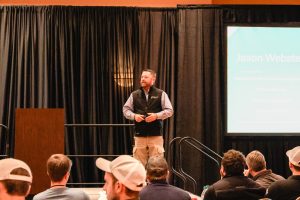Butte, Nebraska | Boyd County-Kippah Line
Subsurface drip irrigation (SDI) is transforming how the Lechtenberg family farms. In a region known for limited water and dryland practices, Shane Lechtenberg has grown from zero irrigation experience to managing nearly 800 acres of high-efficiency drip systems. Based on the Nebraska–South Dakota border, the Lechtenbergs are using SDI not just for crop yields—but to support their cattle operation, build soil health, and prepare for future generations.
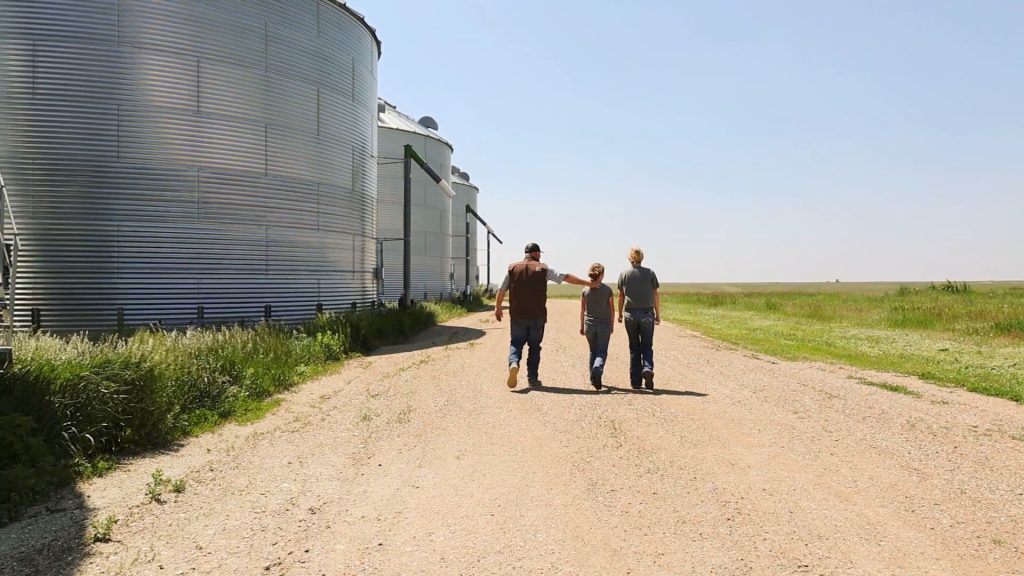
Why Nebraska Farmers Are Turning to Subsurface Drip Irrigation (SDI)
Shane installed his first SDI system in 2013, despite having no prior irrigation background. It wasn’t easy at first, but the payoff was clear:
“We’re seeing at least two-thirds bigger yields just by having moisture available.”
By delivering water and nutrients directly to the root zone, SDI has helped the Lechtenbergs grow more corn and beans—using less water and labor.
What is Subsurface Drip Irrigation?
Farming with Water Restrictions in Nebraska
Rethinking Irrigation: NutraDrip’s Role in Smart SDI Design
After the first system, Shane partnered with NutraDrip, a trusted SDI design and agronomy partner. Together, they reimagined the second system from the ground up.
“NutraDrip brought a full package—not just install, but layout, nutrient strategy, and future expansion.”
From choosing the right tape and flow rates to field layout planning, NutraDrip helped the Lechtenbergs avoid common mistakes and build for long-term success.
NutraDrip Subsurface Drip Experts
Precision Fertigation Planning
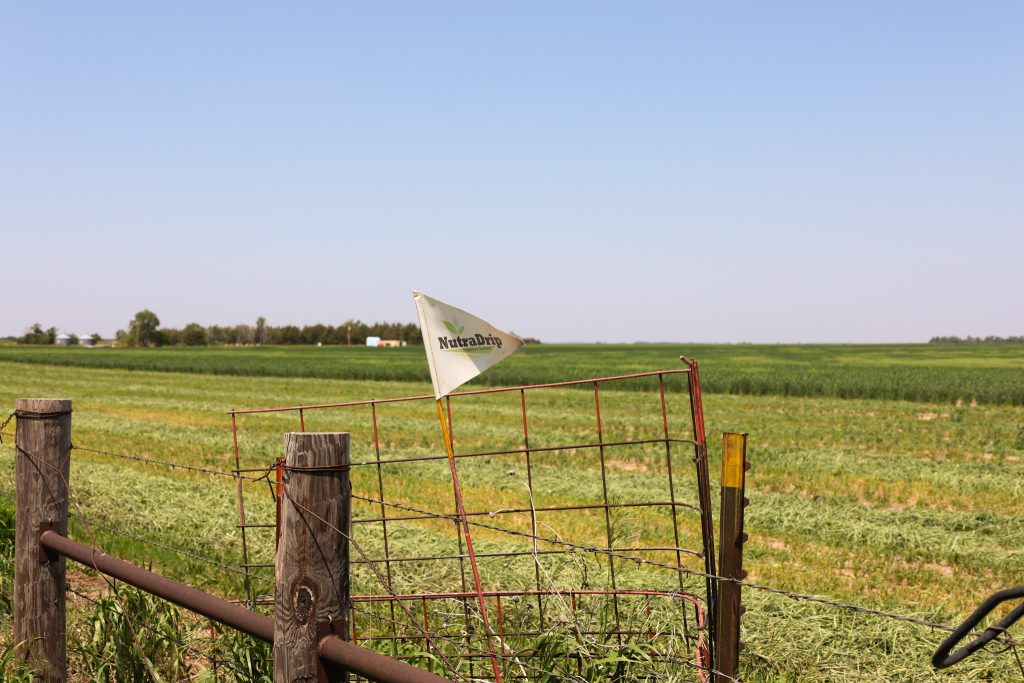
Lessons Learned: Pressure, Power, and Efficiency
Early on, the farm didn’t have access to three-phase power, so diesel generators powered the system. That led to inconsistent zone pressures and daily frustrations.
In 2023, they upgraded to electric service with VFDs, advanced controllers, and Netafim pressure-compensating tape—making their system more efficient, reliable, and less labor-intensive.
“We were always chasing our tails trying to balance the system—now it runs smooth.”
Netafim Pressure-Compensating Drip Tape
Link suggest
[Drip System Efficiency Upgrades] – link to your blog on VFDs, controllers, or infrastructure improvements
A Full-System Approach: From Fertigation to Soil Health
Drip irrigation isn’t just about water—it’s a gateway to precision fertigation and improved soil biology.
The Lechtenbergs now use:
- GroGuru soil moisture probes (installed year-round)
- IrriWatch satellite imagery (to detect stress early)
- Dema Easydose injectors (to apply micronutrients and build carbon)
“We’re adding new injectors this year to fine-tune our nutrient program even more.”
GroGuru Soil Monitoring Probes
IrriWatch Satellite Crop Monitoring
Dema Easydose Micronutrient Injector
Benefits of Fertigation and Soil Health
Dual-Purpose Design: SDI That Works for Crops and Cattle
Water efficiency matters even more in cattle country. The Lechtenbergs designed their SDI system to support both crops and livestock—with water tanks installed right in the drip fields for stalk grazing and forage.
“In a drought year, we’ve still got feed. That’s peace of mind.”
They carefully planned fencing, crop rotation, and water access to avoid digging up fields later.
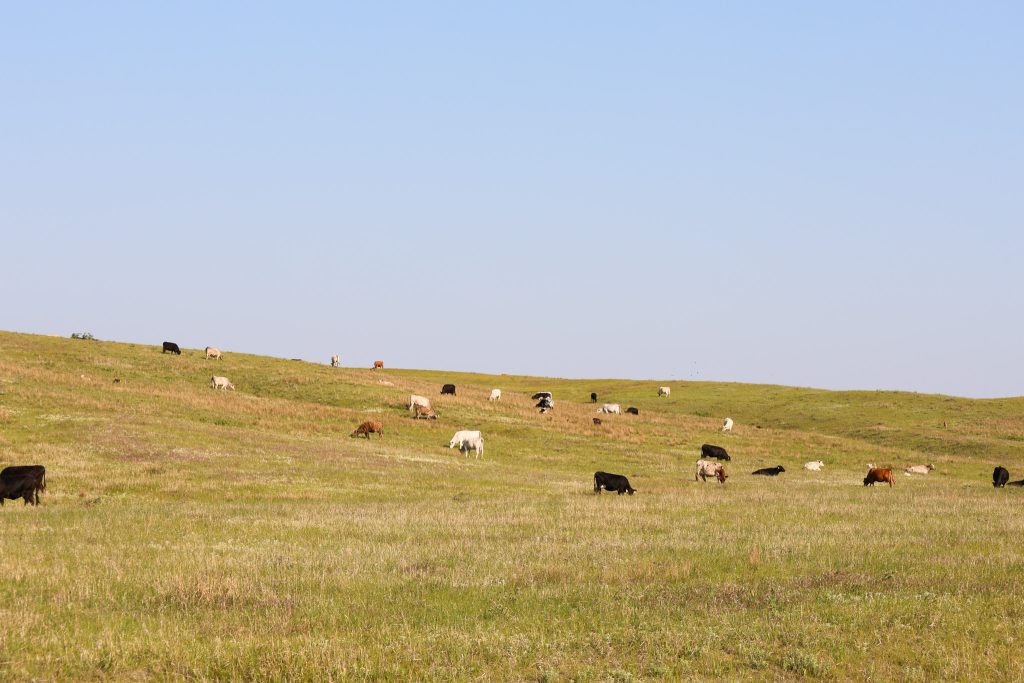
The Next Generation of Agronomy in Nebraska
Laney Lechtenberg, Shane’s oldest daughter, is studying agronomy at Mitchell Tech and brings new knowledge to the farm every week.
“It’s hands-on learning, and I’m already using it here.”
From crop scouting to nutrient strategy, the next generation is helping push the system—and the soil—forward.
Mitchell Tech Agronomy Program
The Future of Agronomy in Nebraska
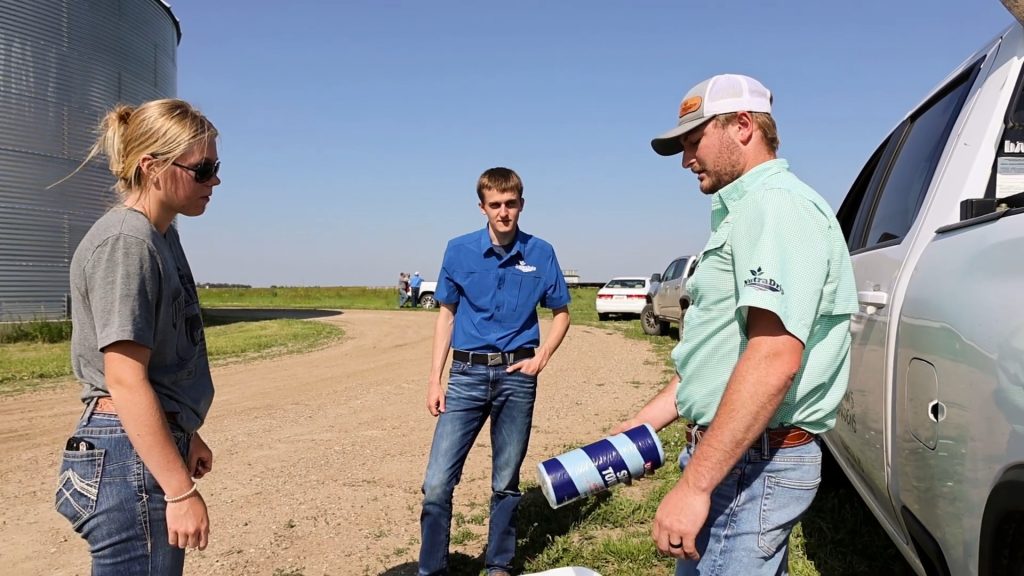
Advice for Other Nebraska Farmers
“When we started, I didn’t know what questions to ask. That’s where NutraDrip really helped—figuring out what I didn’t know yet.”
Whether it’s layout, fertigation, or power supply, getting SDI right from the beginning makes all the difference. And when things didn’t go perfectly?
“NutraDrip keeps showing up. That matters.”
What’s Next for the Lechtenbergs?
With stalk grazing, carbon-building practices, and year-round moisture monitoring, the Lechtenbergs are using SDI to increase efficiency and resilience—without giving up flexibility.
“We’re doing everything we know how to do—and we’re still adding more.”
Want to Learn More About Drip Irrigation for Nebraska Farmers?
If you’re a Nebraska farmer—especially in areas facing groundwater limits like the Little Blue Natural Resources District (NRD)—subsurface drip irrigation can help you conserve water while maintaining yields.
Little Blue NRD Groundwater Rules
Drip Irrigation for Water-Limited Regions
Explore More

